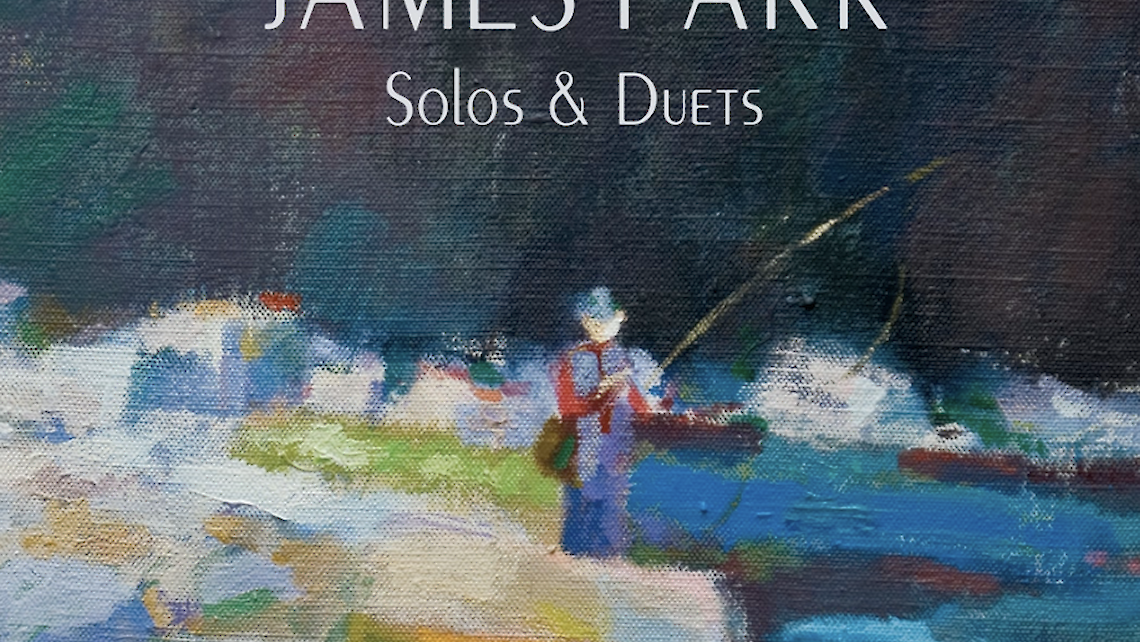RIP James M. Park
RIP James M. Park
News of the death of Jamie Park arrived earlier this year from his his daughter. I came to have great respect for him and his music. I am now spending some time with it.
One of my first gigs was for the Bar Harbor Music Festival in 1986. Jamie was on the board. He contributed a piece to the program I built for that festival. We did not understand the piece. But we stayed in touch.
It was his Brown Study that brought me to a serious re-consideration of his work ten years ago. I began to recognize how Jamie’s way works on me, over-riding my objections.
“My wife and I always knew what a –>brown study<– was. I can’t say where we learned of the expression.”
Do we hear him here deliberately landing in something akin to the parlor music we encounter in the music of Charles Ives? And that’s not all that might be off-putting. He was unafraid of homespun musical materials.
I gradually came around, accepting his simple materials no less than Ives’.
I am noticing how the dominant 9th chord happens more than once in the works mentioned here. That’s a very French thing, a bridge between whole tone and octotonic, but Park makes it his own.
I also notice that the brown (sad, down) quality is undermined by his bizarre, often capricious inventiveness.
Not many were aware of the work of James Park. He has no internet presence. Image searches yield nothing. He asked very little of anyone. He attracted some loyal musicians in the flesh.
He had fishing haunts in the Adirondacks. For the cover of his CD he chose a painting by a fishing friend named Ralph Della-Volpe.
I found such as the opening of Song in Mountain Pool far too sweet and simple. I admitted to being interested in exploring some less sweet musics and he accepted that, but when all the modernists died, the regime behind the Rockwell Coup long in place, and the world was utterly changed I took the opportunity to re-examine Jamie’s music.
From the sweet beginning, the way he spins out his tale is very curious, involving a series of twists that beckon harder twists and finally a crux.
He was also a medievalist, often touching of such old themes as are collected in the Child Ballads –
The courtyard is another fishing spot.
Bells (harmonics) happen at the crux of this watery Adirondack fishing music. Fish begin to take on the magic of Melusine.
The ending: the melodic descending 5th is echoed, compressed in the final chord. We associate that trick with modernists. Jamie was unafraid of modernisms, but he did was never interested in modernist surfaces. He would never take a surface that would gain him entry to a club.
He is always head to a crux, a bizarre crossing point.
Cygnus’ first cellist John Whitfield programmed Flint Hill Evensong in the 90s on a Cygnus program. His interest in the piece helped melt my icy modernist heart. Cygnus programmed Jamie’s treatment of the famous Welsh tune. And there’s another Cygnus peice that we should perform because I think it might be one of his best works.
His surfaces are dynamic, in flux. A melody is something more set and stable. There are tunes, and things that reappear as such, but doesn’t the dynamic aspect prevail? Something is always in the progress of becoming. If it’s feeling terribly sweet, wait for the it to come to a head. Sweetness is dissonance inside-out? Both can be explained or diffused by what follows, if what follows is deft and cumulative.
He once put his cards on the table – he told me his music progresses from simple materials toward increasingly complex situations, entangled in symmetries and polytonality. This reminds me of Faure when Faure’s development leads him to sneaky whole tone things. I think I mentioned that to him. I think he brought up his teacher Wallingford Riegger, and nevertheless his symmetries are very idiosyncratic. They are honest and very much his own.
Sweet is his B-roll.
The symmetries are his A-roll material.
In my most felicitous hearings, B gives birth to A, which redeems B.
Flaws in B are fogiven, as the B enterprise is successfully birthed the A.
Flaws in A are forgiven for having provided the sense that B has done something.
Is it tempting to think of Coleridge? B is fantasy, which can seem capricious and not necessarily headed in a meaningful direction. B, aimed at A is imagination? Any sense of this dynamic comes from the polytonal nature of A and how that re-makes B – accumulation.
Does his sweet B-roll material point to the A-roll material, make it inevitable? Or is it all too capricious?
Like David Loeb and Charles Ives, Jamie was a composer who did not mind being all alone, joined no clubs.
He wrote some music that is admirably weird, remote and unapproachable. I’m curious to revisit, “Accidentals Happen”, another guitar solo. It must be on a hard drive somewhere. Last time I picked it up I could not understand it at all and so I suspect there’s something important there to discover.







